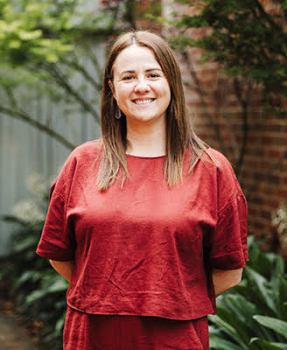As any local elected representative can attest, the atmosphere inside council can be combative to say the least.
For many – especially young women new to the fray – it can prove too much.
Investigating why 70 women didn’t choose to run in Victoria’s 2024 local government elections, the Australian Local Government Women’s Association found 80 per cent cited an abusive environment as a contributing factor.
ALGWA’s findings echo those of a survey conducted earlier in the year by the Victorian Local Governance Association, which showed 61 per cent of female respondents had been impacted by threatening or intimidating behaviour by their fellow councillors.

“In the chamber it can happen quite frequently, and that’s when it becomes really tough,” President of ALGWA Victoria Clare Williams tells GN.
Outside the chamber it can be just as hostile. “Our communities are really standing up and telling us what we need, sometimes that can come across quite harshly,” Cr Williams says.
Cr Williams – who represents Tarwin Valley ward for South Gippsland Shire Council – was speaking to GN in response to ALGWA Victoria receiving state government funding to deliver a mentoring program designed to steer newbies through the machinations of council processes and procedures. “They go through training of the dos and don’ts,” Cr Williams says.
The program focuses on the first 12 months of an inaugural term. Cr Williams tells GN a councillor’s first term can be extremely daunting. After all, a large part of the job for an elected representative is to fight for the interests of their community while having to grapple with competing egos. “All of a sudden you’ve got – depending on where you are – anywhere up to 11 councillors, new colleagues that you need to strategically manage,” Cr Williams says. “Everyone has their own ideas about how they want to work. We don’t all work the same, so it’s about building those skills to identify that – it’s about managing those different personalities.”
The mentor will help the mentee scenario test heated situations, Cr Williams explains. “They’d be asking, ‘So when you’re having these arguments what would you like to achieve at the end of it – what’s the end goal?’”
It’s about managing those different personalities.
ALGWA Victoria has received $20,000 to connect 20 women councillors with experienced peers. “It’s about making sure those women are feeling supported and have someone to go to outside of their council,” Cr Williams explains.

Acknowledging that obstacles stand in the way of women entering the local government sector, Local Government Minister Nick Staikos said he hoped the program will “encourage more women to stand for council”.
“It is fantastic to be partnering with ALGWA Victoria to help empower women and make clearer their pathways to leadership,” he added.
ALGWA Victoria has been lobbying the government for some time to support its mentoring program, which has been voluntarily run for the past six years. “So this is a really welcome announcement by Minister Staikos,” Cr Williams says.
Once the initial 12 months is up, it’s for the mentor and mentee to decide whether they want to continue the partnership. “I did the mentoring program when I first got onto council, and I still have my mentor four years later,” Cr Williams – now in her second term – tells GN.
She’s quick to point out that the mentors aren’t there to hand-hold and assist with the day-to-day business of the job. “That is a big no-no,” Cr Williams says. “We want them to find themselves and do their jobs to the best of their ability. And that’s not by giving them the answers, but by helping them and challenging them to think in different ways to get to the solution.”




Leave a Reply